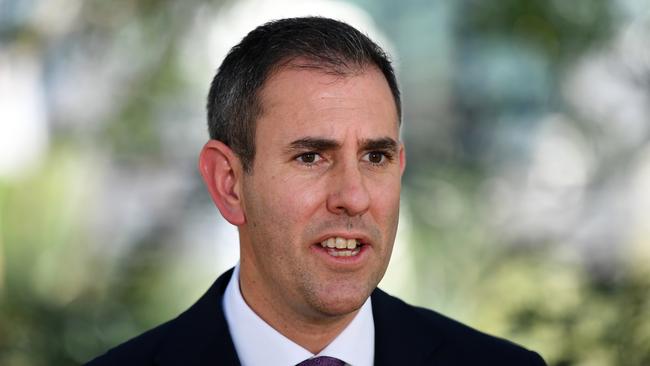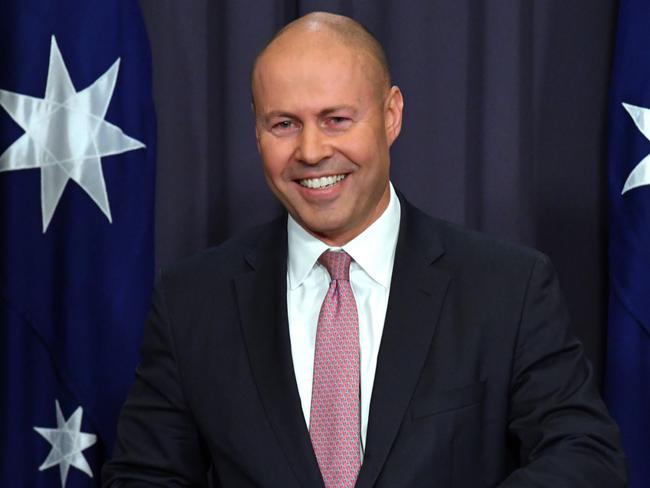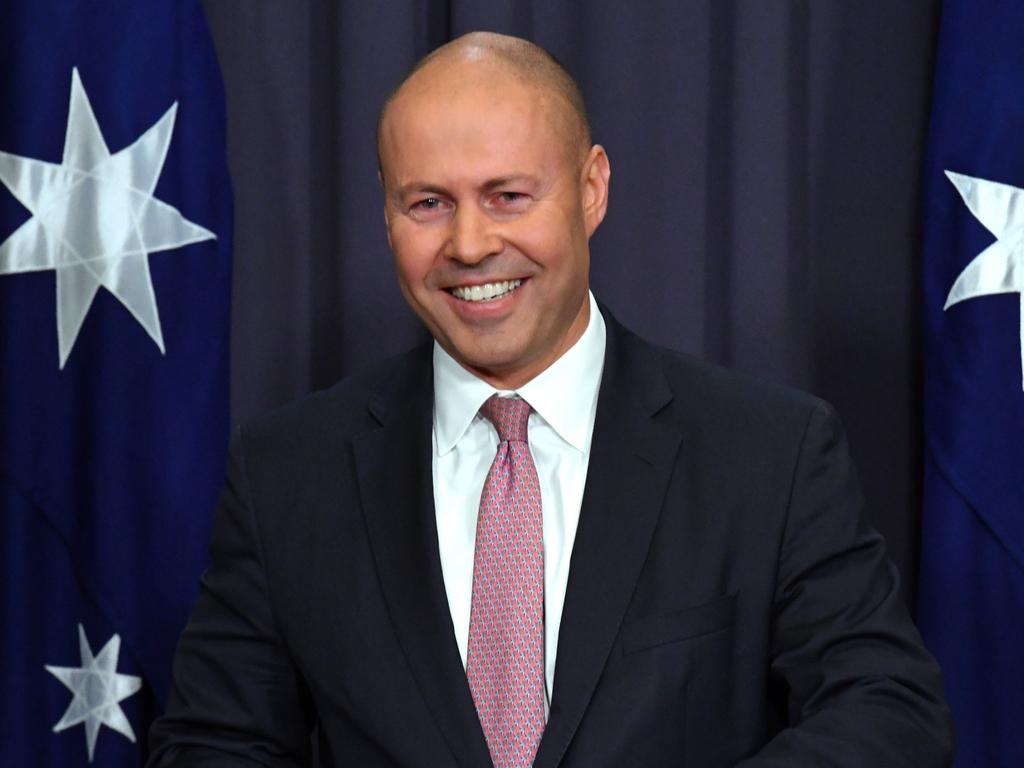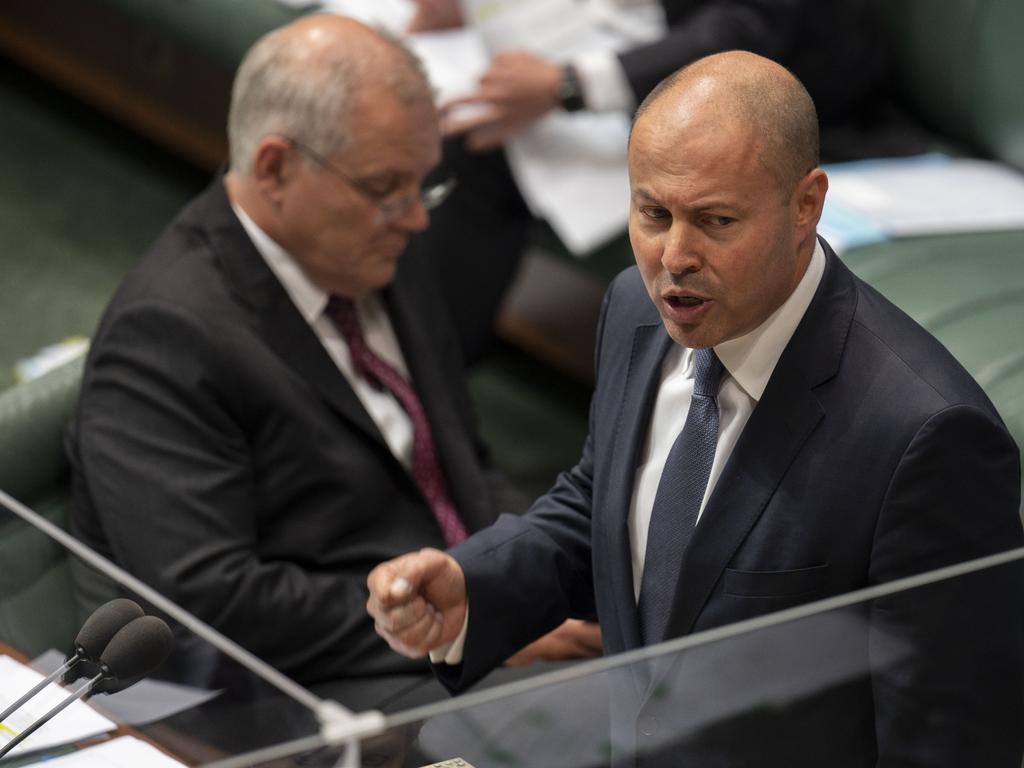Economic balancing act will require a Goldilocks budget
The recovery sweet spot means not moving too fast, or too slow, on budget repair.

The Treasurer’s fourth budget, on March 29, could be his last if current voter sentiment prevails. This budget will need to have more rhetorical oomph than the previous two, which came amid the Morrison government’s overblown crisis comms and short public attention spans due to long-life Covid-19.
Will a fistful of dollars cut through? Unlikely, given there are diminishing returns for pre-poll giveaways, even though cost-of-living is the top issue voters want governments to act on. Besides, Scott Morrison is reaching for the welding goggles as he seeks to fuse economic prosperity with national security in this time of “radical uncertainty” as he calls it.
Since 2019, Frydenberg has turned a budget essentially in balance into an estimated $340bn of accumulated deficits over the current four-year budget cycle, with chronic deficits built into Canberra’s fiscal DNA for the rest of the decade. This structural shortfall, the difference between embedded spending and taxing, will settle at 2 per cent of GDP, or $40bn in today’s dollars, year in, year out.
Long-range guessing by Treasury has the budget in deficit for the next 40 years. Peter Costello, the treasurer who instituted the discipline of this forecasting exercise, and a few other fiscal reality checks, has called on the Reserve Bank and Canberra to ease back on the “rocket fuel” of cheap money and stimulus.
Chest out, with a side-eye to “austerity”, the Prime Minister declared cutting spending was not the main game right now. “We still have very strong priorities in areas like aged care, mental health and, of course, supporting the National Disability Insurance Scheme,” he told the AFR’s business summit this week. “But you can’t do that without a strong economy. That’s what pays for it.”
Besides, after the splurge in the past two budgets (when payments rose by 13 per cent and 17 per cent in real terms), they were set to fall by 6.3 per cent this financial year and 4.8 per cent the year after, according to last December’s update. That’s because of a plunge in the emergency welfare bill and an end to business grants
Frydenberg’s crisis-mode cover for giving things away, saying Yes more often than No to ministerial and backbench colleagues, is over and so he is moving into another phase. The Treasurer said in a recent speech it was time to draw lines in the sand on spending.
That constraint applies to Labor, even as it eyes the recovery as the launch pad for spending more on childcare, clean energy projects, and manufacturing.
Over the coming 18 months, our top officials are trying to choreograph landing on the “sweet spot”, as Treasury secretary Steven Kennedy calls it.
Almost within reach is the nirvana of full employment, and Kennedy says we should go for it, even if there are risks attached to a cash rate at what economists call the “zero lower bound”. This is a once-in-50-years chance to get the jobless rate into the 3s or low 4s.
“While nothing is assured, let us hope that we can seize this opportunity in the period ahead and reward younger generations for the significant impost they have taken on through the budget in protecting all Australians from the impacts of Covid,” Kennedy told a Senate hearing last month.
For now, that means delaying budget repair until the recovery is locked in. After that, the strategy is to stabilise and then reduce debt as a share of the economy. No matter who wins in May, this is the essential fiscal game plan.
Kennedy argues “it is important that the withdrawal of fiscal policy is tapered, as it currently is, to ensure that monetary policy has an opportunity to normalise”. Ultra-low borrowing rates can lead to asset-price bubbles. They burst.
The sweet spot means not moving too fast, or too slow, on budget repair. Before Russia’s invasion of Ukraine, and the spike in commodity prices and financial market conniptions, the Treasury chief said he was “comfortable” with the budget position: the taper was locked and loaded. “I think the balance is roughly right at the moment, but there’s no set and forget,” Kennedy told the Senate. Was that a green light to Frydenberg and Labor’s Jim Chalmers, the man who wants the Treasurer’s job, to go on a campaign bender, while money is cheap and there’s so much red ink who’s going to care about adding to a net debt heading to $915bn by the end of this budget cycle? No.
The official advice is to play to the conditions. Move with the times. It’s possible the economy will grow faster than expected and budget repair can be brought forward, the Treasury chief argues, given the recovery has been surprisingly strong. “It’s hard to see a case for any additional support, so we are tapering less slowly than what we have,” he told senators.
Got that? There’s plenty already committed and an immense amount, around one-fifth of GDP, sitting on household and business balance sheets.
Yet that puts centrist Kennedy at odds with other budget watchers. Some would like even more fuel to drive the jobless rate lower plus a permanent lift in the JobSeeker payment to alleviate poverty. Others argue that we have accumulated too much debt and it’s time to cut spending and rebuild our firepower for the next crisis.
The independent Parliamentary Budget Office has concluded the clamps other countries imposed after the 2008-09 Global Financial Crisis are not needed here, but some deliberate steps to close the fiscal gap are required. The earlier you start, even baby steps, the less pain and disruption there’ll be later on. But we have to get through a budget and an election. If the government weren’t in such a deep electoral hole, Frydenberg wouldn’t be talking about lines in the sand: he’d be monstering ministers rolling into the Expenditure Review Committee with their wish lists. Please Josh, I want some more.

Frydenberg should be reminding them about what their side of politics is about: thrift and self-reliance, for starters. He should be putting responsibility back on his colleagues, like former Kiwi finance minister turned PM Bill English did: “Here’s your budget, choose your priorities, make it work.”
When will it be a good time to take stuff away? There will always be fresh calls on spending, especially now the nation’s credit card has been maxed out and billions aren’t what they used to be.
In 2011, Julia Gillard imposed a flood levy on workers earning more than $50,000 a year to raise less than $2bn.
We know the NDIS is a pressure point; its cost could balloon to $76bn by the end of the decade, according to the PBO. Aged care will keep taking up more of the budget, which is due to ageing and a change in the mix of services, as well as better care standards arising out of the royal commission.
Defence spending will rise for obvious reasons: elevated threats, less free-riding, customary poor cost-control. There will also be higher costs (in tax and goods prices) as the policy pendulum swings from globalisation to self-sufficiency in fuels, medicines, farm chemicals and personal protective equipment. “Resilience” is the new protectionism.
The revenue side of the budget is not fit for purpose. International bodies such as the IMF and OECD keep telling us we rely too much on personal income tax; as the nation ages, there will be fewer taxpayers, and a growing number of cashed-up who aren’t going to be paying much tax the way things stand. So let’s not broaden the GST and raise the rate because that would bring some radical certainty to the tax base!
An election campaign should be the place to have our budget ills aired in public. Yet our politicians talk non-stop about easing the cost of living now and look the other way on the question of who is going to pay for this unsustainable lifestyle. Think about who made the greatest sacrifices during the pandemic.
We need a few clear principles, black lines on a spending map: we do this and we don’t do that. Does this make Australia fairer? Does it make the country richer? Will it crowd out the business sector?
No one in politics has the guts to articulate these things. Instead, our leaders maintain a fiction, rob workers through fiscal drag or keep borrowing from the future just to maintain public consumption. Or assume we’ll just grow our way out of this, you beauty!
Morrison gave a longwinded speech on the economy this week and did not mention productivity. But he did find the lungs to slap down the reform seekers in business and ex-officials, those nuisances who always want big bang policy changes on tax and climate, when they should be grateful for anything his crew of incrementalists throw their way.
Labor’s insipid pre-election fudge is that it’s all about the quality of spending, changing priorities rather than winning an argument about what governments can do and what they can’t. Liquidating the Coalition’s vote-chasing rorts and the “reckless spending” that accumulates over successive terms will only get the party so far should it win.
The do-nothing alternative that prevails – something will come along, Hello, a jump in commodity prices! – is tantalising in our short electoral cycles. But the risks are that someone else imposes tough medicine and you are plain out of luck for the next crisis.
Let’s junk the all-caps political furphy of VISION, a trite concept to dazzle and distract. It’s as awful as radical uncertainty or “be like Bob”. Australia needs competence, the prosaic kind of doing your job, living within your means, planning for the future. Regardless of which party wins the election, rescuing the budget from endemic deficits, while cranking up our productivity performance, is all that matters.






By the time the federal election is called, Josh Frydenberg will have delivered an eccentric quartet of budgets. Two will have been down payments to voters for a Coalition third and, possibly, fourth term; the other two, all-you-can-eat fiscal banquets to sustain a pandemic-abridged economy.